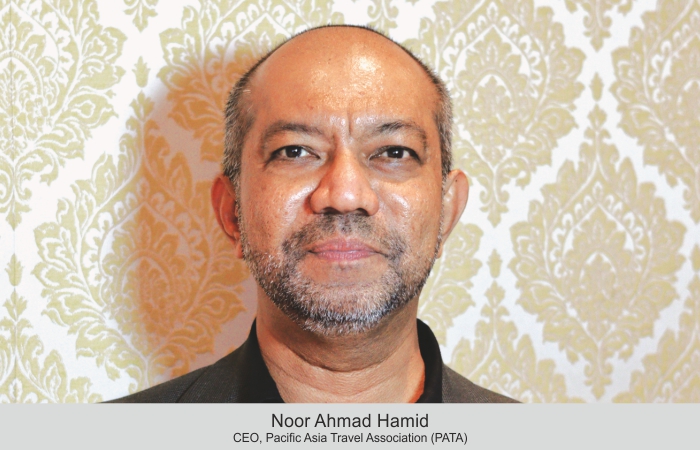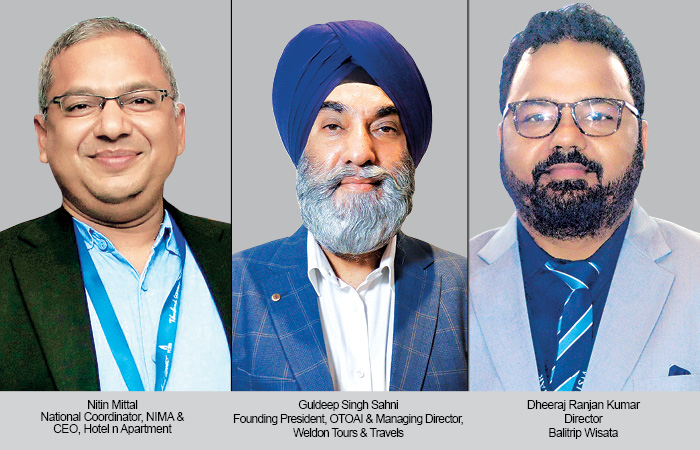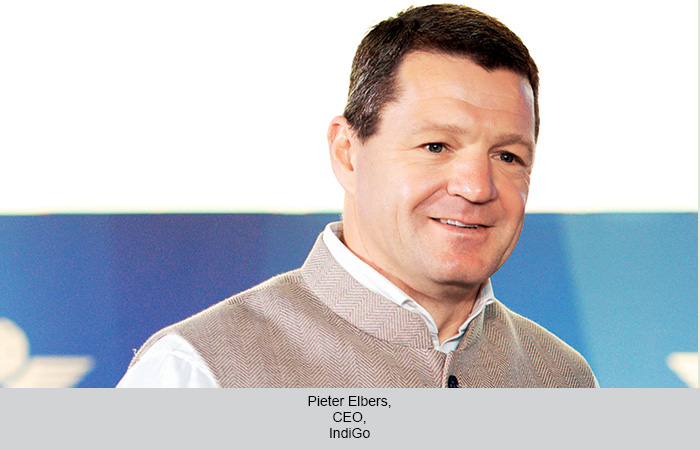As the Indian tourism industry charts a course towards expansion, collaboration between stakeholders, guided by organisations like PATA, will be instrumental in realizing its vision of becoming a premier global tourism destination. Noor Ahmad Hamid, CEO, PATA, discusses India’s aviation surge and outbound tourism’s diverse potential.
Janice Alyosius
The global tourism industry has long been recognized as a significant contributor to economic prosperity, and India stands as a prime example of leveraging this sector for growth. According to recent statistics from Future Market Insights, the tourism economy’s contribution to India’s GDP reached a staggering US$10.5 trillion in 2022, with forecasts predicting a monumental surge to US$171 trillion by 2032. Amid these impressive figures, Noor Ahmad Hamid, CEO, Pacific Asia Travel Association (PATA), shed light on the dynamic landscape of Asia’s aviation sector, particularly India’s remarkable growth trajectory during the 3rd edition of PATA India’s Tourism Powerhouse in Delhi recently.
Hamid highlighted India’s unparalleled aircraft acquisition spree, with the country poised to witness the delivery of nearly three new aircraft per week over the next four years. This surge in aviation capacity, coupled with initiatives like Air India’s rebranding and network restructuring, underscores India’s commitment to enhancing its competitiveness in the regional market. While acknowledging India’s burgeoning aviation sector, Hamid emphasized on the importance of a clearer strategy and refined product offerings to effectively compete with regional counterparts. “It is a crucial role played by airlines. In India, IndiGo and many other airlines serving the destination play a crucial role in not only bringing out people, but more importantly bringing in people to the destination,” he said.
In the context of India’s outbound tourism market, Hamid underscored its burgeoning diversity, encompassing leisure, visiting friends and relatives, and business travel segments. Despite projections indicating a doubling of the Indian outbound market within the next five years, Hamid asserted that India’s market size will remain behind China’s, positioning it as the third largest globally. However, this underscores the immense potential for further growth and diversification within India’s tourism landscape. The significance of tourism to India’s economy extends beyond its domestic market, as it serves as a catalyst for Foreign Direct Investment (FDI) and domestic infrastructure development. India’s rich cultural heritage and geographical diversity further bolster its appeal as a premier tourist destination, attracting visitors from across the globe. Moreover, Hamid emphasized on the 2023 Union Budget’s provisions for sustainable tourism growth, signalling the government’s commitment to fostering a conducive environment for the sector’s development.
Despite facing challenges, such as the downturn in inbound tourism in 2021 due to the pandemic, Hamid shared, India’s tourism industry is poised for a robust recovery. “Projections indicate a full recovery to pre-pandemic levels by 2024, with subsequent growth surpassing previous benchmarks,” he said.
Against this backdrop, PATA’s role emerges as pivotal in shaping India’s tourism narrative on the global stage. The recent election of the Ministry of Tourism of India and the PATA India chapter to the PATA board underscores India’s commitment to global tourism leadership. Hamid emphasized on the importance of India’s engagement with PATA in harnessing its domestic and outbound tourism potential while contributing to global industry discourse. Highlighting the plans for India market, Hamid said, “India is an important market, whether inbound or outbound. It is getting stronger day by day. There are a lot of touch points that we want to engage with the members in India, particularly in developing a more responsible tourism. We talk about how the PATA chapter and community in India can work towards providing information or data to Indian government to formulate tourism policy.”
 TravTalk India Online Magazine
TravTalk India Online Magazine








